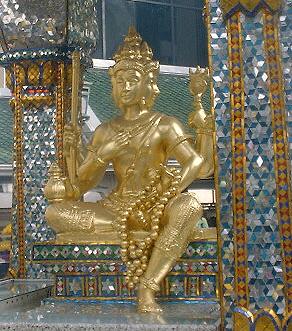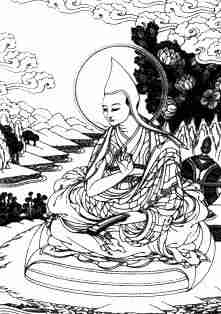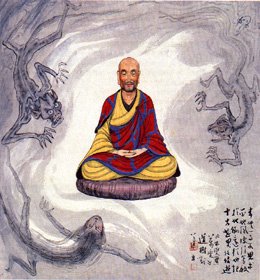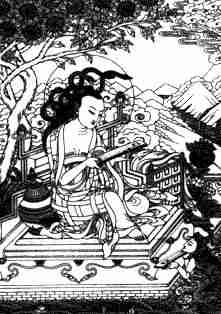 As most of us already know, 2 days ago (21.3.06) a mentally-deranged man hammered the much-revered statue of Pra Prom or Brahma creator god at the Hyatt Erawan Hotel in Bangkok and reduced it into rubble. Only the part of lap and base of the statue were left intact. Its head was broken and fell off to the ground. Officials have since put up white cloth to hide what is left of the statue. The man was later identified as Thanakorn Pakdeepol, 27, a Muslim. While he was trying to escape, some taxi drivers and people near the scene caught up with him started to beat him up. The madman died from his injuries about 50m away from the Pra Prom shrine.
As most of us already know, 2 days ago (21.3.06) a mentally-deranged man hammered the much-revered statue of Pra Prom or Brahma creator god at the Hyatt Erawan Hotel in Bangkok and reduced it into rubble. Only the part of lap and base of the statue were left intact. Its head was broken and fell off to the ground. Officials have since put up white cloth to hide what is left of the statue. The man was later identified as Thanakorn Pakdeepol, 27, a Muslim. While he was trying to escape, some taxi drivers and people near the scene caught up with him started to beat him up. The madman died from his injuries about 50m away from the Pra Prom shrine. Although astrologers predict bloodshed and bad times ahead from the destruction of the revered Brahma statue in central Bangkok, what I'm more concerned is the possible backlash against the Muslim population in Thailand, even though the culprit is insane and could not be held totally responsible for such an act of terror. He might be dead, but the result of his actions will have far reaching effect on religious sensitivities in the kingdom. Given the political turmoil that is already shaking up the country currently, the situation could very well turn worse if further religious conflict enter the picture at this time.
Although astrologers predict bloodshed and bad times ahead from the destruction of the revered Brahma statue in central Bangkok, what I'm more concerned is the possible backlash against the Muslim population in Thailand, even though the culprit is insane and could not be held totally responsible for such an act of terror. He might be dead, but the result of his actions will have far reaching effect on religious sensitivities in the kingdom. Given the political turmoil that is already shaking up the country currently, the situation could very well turn worse if further religious conflict enter the picture at this time.As Buddhists, we must view this happening with a calm mind, reflecting on the impermanance of all external phenomena. See that all the Buddha images in our world, no matter how holy they are, are not the real Buddha. The real Buddha is in our heart and it is this Buddha-nature that is truly indestructible like diamond. Even when the whole world is burned up by fire at the end of the Maha Kalpa (great eon), the Buddha-nature remains the same as always. Throughout history there had been persecutions on Buddhism; countless temples, pagodas, images & scriptures had also been destroyed as a result. But the Dharma was able to survive to this day because it always lived in hearts & minds of the people no matter what happened. Pra Prom or Brahma is not so much about a Creator Deity, but about the 4 immeasurables he represents - Universal Love, Compassion, Joy & Equanimity. These are are also the inherent qualities that makes a person immortal even though his physical body may die. Seek these immeasurables in your heart and Brahma will forever be present in you, sadhu.


